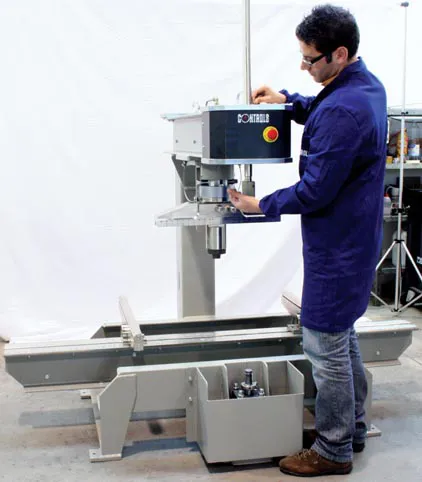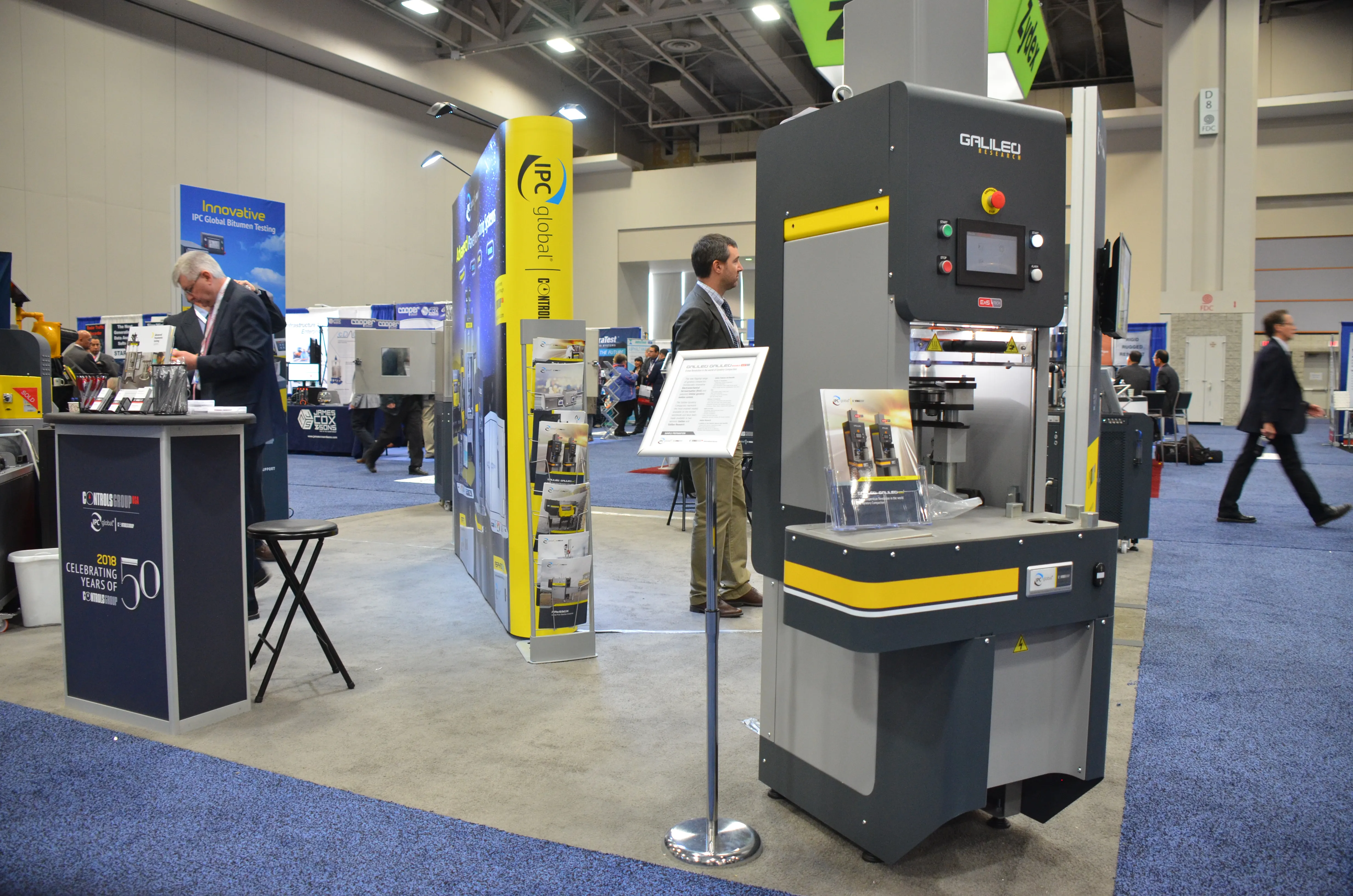
Based on the tried and tested platform of the AMPT, the new AMPT PRO offers improved capabilities and innovative new features. One of the most important new features is the improved higher force performance. This helps to cope with new asphalt mixes with higher modulus and stiffness. These mixes need higher dynamic and static forces to ensure accurate and reliable test results. As a result the firm has utilised servo-hydraulic technologies with high performance labyrinth bearing actuators to allow the AMPT PRO to reach forces of up to 19kN.
Another upgrade is the improved cooling and heating performance. The new AMPT PRO exceeds the thermal performance of the previous generation AMPT and surpasses the performance of any AMPT currently on the market according to the firm. Its rapid cooling functionality allows the system to cool from 23°C down to 4°C in under 20 minutes. In addition, better ergonomics mean the equipment is easier to use while it offers both improved versatility and capabilities. The AMPT PRO performs common asphalt test standards, but also has been engineered to allow for upgrading with new test kits. The new AMPT PRO can also conduct tests on smaller diameter specimens and the design allows laboratories to interchange between different types of transducers with fast and easy pluggable signal conditioners for seamless swapping between test setups.









